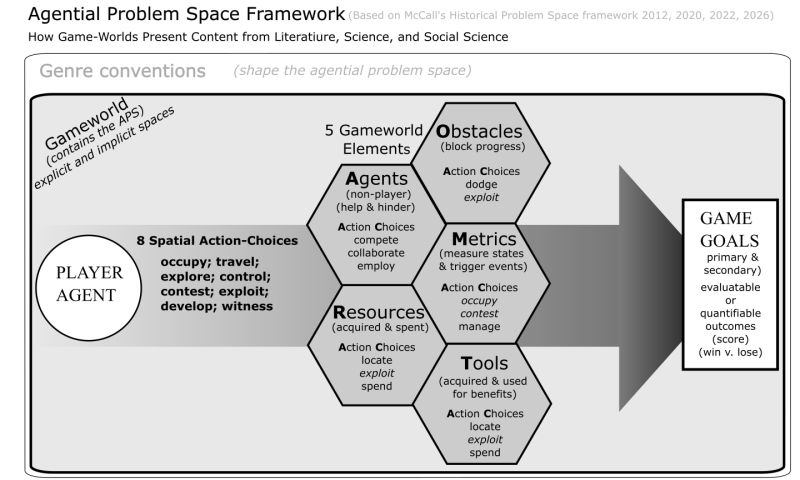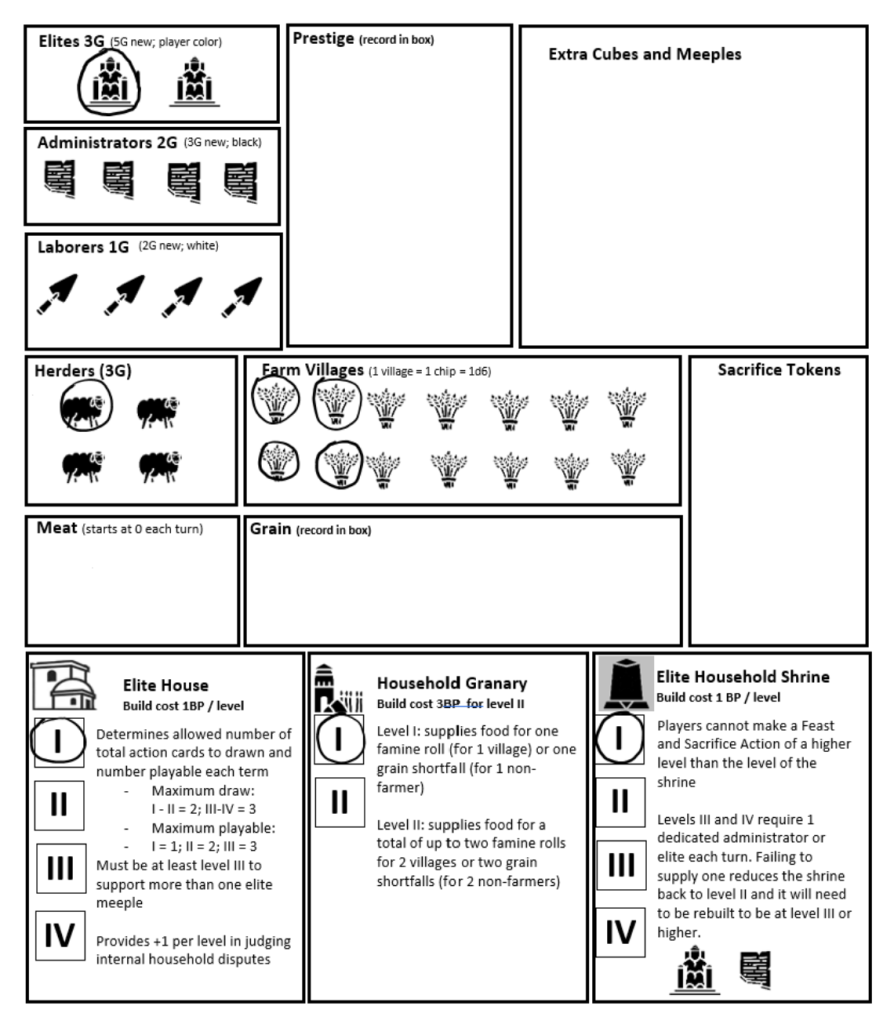This is the second part in a planned series of dialogues with historian, educator, and historical game designer, Vinicius Marino Carvalho, about the Historical Problem Space Framework as set of concepts and tools for analyzing and designing historical games in any medium. (Read Part I)
Vinicius: So, Jeremiah. I think I owe your readers an apology. I ended the first part of our collaborative blog post on a *massive* cliffhanger, promising to introduce a perspective that could in theory render the entire HPS framework moot.
(On hindsight, I really should make a note to tone down on the hubris…) But, more to the point, I think it’s fitting that I explain what I was talking about.
This might sound trivial, but there’s an explicit assumption in the “A.R.T.M.O.”. typology (Agents, Resources, Tools, Metrics and Obstacles) (Jeremiah’s note: it changed from A.R.T.O. to A.R.T.M.O.s for the upcoming book) that these four elements are different things. Meaning: there are entities that act, and entities that are acted upon. Moreover, in history, specifically, we generally assume that agents are human, groups of humans, or at least human-like in some capacity.
Herein lies the rub: there are some theorists who have been trying to problematize the distinction between ‘agents’ and ‘things’. You can find them in perspectives like posthuman theory, actor-network theory, animal history, interspecies history, archaeology (which deals with the agency of things), new materialism (which deals – among other things – with the agency of inanimate matter), etc.
Read more…







